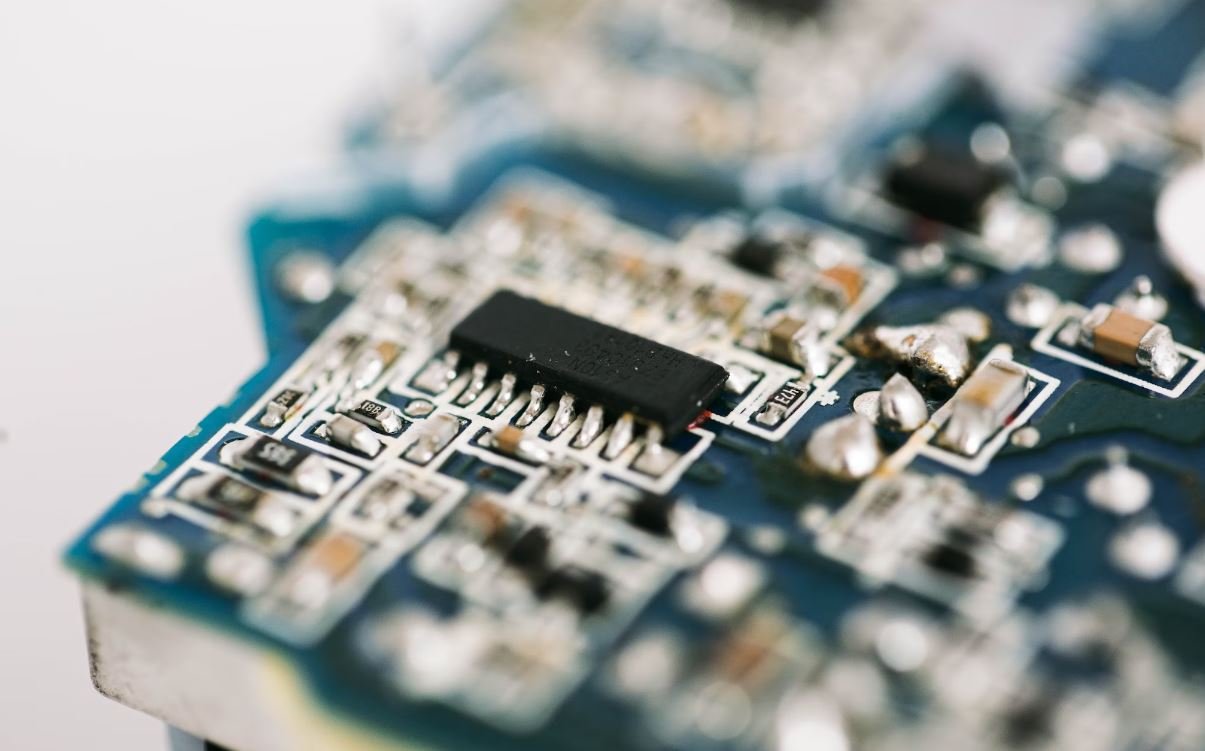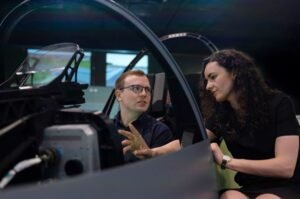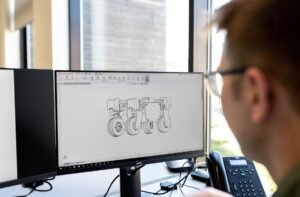AI Movie Production
The rise of Artificial Intelligence (AI) has had a significant impact on various industries, and the film industry is no exception. AI is revolutionizing the way movies are produced, from scriptwriting and casting to visual effects and post-production. This technology has the potential to streamline workflows, enhance creativity, and improve the overall quality of movies. Let’s explore the exciting possibilities of AI movie production.
Key Takeaways:
- AI is transforming various aspects of the film industry, including scriptwriting, casting, visual effects, and post-production.
- AI can streamline workflows, increase efficiencies, and save time and costs in movie production.
- While AI is a powerful tool, human creativity and decision-making remain essential in the filmmaking process.
The Evolution of AI in Movie Production
AI technologies are increasingly being integrated into the filmmaking process, making it more efficient and innovative. With the help of AI, filmmakers can automate repetitive tasks, generate unique storylines, and even create realistic visual effects. By analyzing vast amounts of data, AI algorithms can identify patterns and trends, providing filmmakers with valuable insights to make informed creative decisions.
*AI-powered algorithms are capable of generating unique storylines based on existing movie plots and popular themes.
The Benefits of AI in Movie Production
- Streamlined Workflows: AI can automate various time-consuming tasks, such as data analysis, script analysis, and image recognition, allowing filmmakers to focus on more creative aspects.
- Improved Decision Making: AI’s ability to analyze large datasets and identify patterns can assist filmmakers in making informed decisions about storylines, characters, and audience preferences.
- Enhanced Visual Effects: AI algorithms can generate realistic visual effects and CGI elements, reducing the need for extensive manual labor and creating more visually stunning movie scenes.
The Role of AI in Scriptwriting and Casting
| Scriptwriting | Casting |
|---|---|
| AI can generate unique storylines, dialogues, and plot twists by analyzing existing movies and patterns in scripts. | AI algorithms can analyze vast amounts of data to recommend actors based on physical appearance, acting style, and previous performances. |
| AI can save time and provide writers with creative ideas to enhance their scripts. | AI-driven casting tools can help identify talented actors who may have been overlooked, leading to more diverse and inclusive casts. |
Future Trends and Challenges
As AI continues to advance, its role in movie production is only expected to grow. The future of AI in the film industry holds promising possibilities, but there are also significant challenges to consider. One of the key challenges is striking the right balance between the use of AI and human creativity. While AI can assist in various aspects of filmmaking, it is crucial to remember that human decision-making and artistic vision still play a fundamental role in creating captivating movies.
*AI algorithms have the potential to assist filmmakers in finding the perfect balance between data-driven insights and artistic expression.
The Impact of AI Movie Production
AI movie production is revolutionizing the film industry by increasing efficiency, enhancing creativity, and improving the overall quality of movies. By automating repetitive tasks, providing valuable insights, and generating realistic visual effects, AI is changing the way movies are made. While AI is not a replacement for human talent and expertise, it is a powerful tool that can augment and redefine the art of filmmaking.
Summary
- AI is transforming the film industry, enabling automated processes, enhanced decision making, and realistic visual effects.
- AI plays a significant role in scriptwriting and casting, generating unique storylines and recommending actors based on data analysis.
- Striking a balance between AI and human creativity is crucial in leveraging the full potential of AI movie production.
- AI is revolutionizing movie production by increasing efficiency, enhancing creativity, and improving overall quality.

Common Misconceptions
Misconception 1: AI Movie Production is Fully Automated
One common misconception about AI movie production is that it is entirely automated and does not require any human involvement. However, this is not the case. While AI can assist in various aspects of movie production, such as generating scripts or suggesting visual effects, human filmmakers and technicians are still essential in the creative process.
- AI movie production still requires human oversight and decision-making.
- Human input is necessary to provide emotions, storytelling techniques, and artistic vision to the movies.
- Collaboration between AI and humans is crucial to ensure the quality and coherence of the final product.
Misconception 2: AI Replaces Actors and Actresses
Another common misconception is that AI technology can fully replace human actors and actresses. While AI can generate realistic human-like characters, they do not possess the same emotional depth and genuine performances that humans bring to the screen.
- Human actors bring their unique interpretations, expressions, and charisma to their roles.
- AIs lack the ability to improvise or adapt in real-time based on unpredictable circumstances.
- Humans are crucial for creating on-screen chemistry and developing authentic connections between characters.
Misconception 3: AI Will Eliminate the Need for Human Creativity
Some people mistakenly believe that AI will render human creativity obsolete in the movie industry. However, AI technology is merely a tool that can augment and enhance human creativity, rather than replace it.
- AI can assist with tasks like generating ideas, scriptwriting, and visual effects, but it cannot replace the depth and complexity of human creativity.
- Humans possess the ability to think abstractly, draw inspiration from emotions and experiences, and push the boundaries of innovation.
- AI is best utilized as a collaborative tool to support and inspire human creators, rather than acting as a substitute for human imagination.
Misconception 4: AI-Generated Movies Lack Originality
Some people mistakenly assume that movies produced with the help of AI lack originality and are merely derivative or formulaic. However, AI can be programmed to generate innovative and unique ideas that human filmmakers may not have conceived otherwise.
- AI algorithms can analyze vast amounts of data and identify patterns and trends, leading to unexpected and fresh storylines.
- AI-generated movies have the potential to blend different genres, imaginations, and perspectives, resulting in entirely new storytelling approaches.
- AI can assist in exploring uncharted territories in filmmaking, bringing novel concepts to the forefront of the industry.
Misconception 5: AI Movie Production Will Replace Traditional Filmmaking
There is a misconception that AI movie production will completely replace traditional filmmaking methods and render them obsolete. However, AI technology is more likely to complement and enhance existing filmmaking processes rather than replace them entirely.
- The artistry and craftsmanship of traditional filmmaking techniques, such as cinematography and practical effects, cannot be replicated by AI.
- Filmmaking is a collaborative and multidisciplinary art form, and AI can amplify the capabilities of various stakeholders involved.
- AI can automate certain repetitive or time-consuming tasks, allowing human filmmakers to focus their energy on more creative and expressive aspects.

Top 10 Highest-grossing AI Movies of All Time
AI has revolutionized the movie industry, captivating audiences with its ability to seamlessly blend the real and the artificial. This table showcases the top 10 highest-grossing AI movies of all time, proving their immense popularity and success.
| Movie | Release Year | Box Office Revenue (in billions) |
|---|---|---|
| The Avengers: Age of Ultron | 2015 | 1.402 |
| Terminator 2: Judgment Day | 1991 | 0.519 |
| The Matrix Reloaded | 2003 | 0.741 |
| Ex Machina | 2014 | 0.367 |
| Wall-E | 2008 | 0.521 |
| Iron Man 3 | 2013 | 1.214 |
| The Terminator | 1984 | 0.079 |
| The Matrix | 1999 | 0.463 |
| A.I. Artificial Intelligence | 2001 | 0.235 |
| Blade Runner 2049 | 2017 | 0.259 |
Gender Representation in AI Movies
AI movies have the power to reflect societal trends and beliefs, including gender representation. This table explores the representation of male and female characters in the top 10 highest-grossing AI movies.
| Movie | Male Characters | Female Characters |
|---|---|---|
| The Avengers: Age of Ultron | 12 | 7 |
| Terminator 2: Judgment Day | 8 | 3 |
| The Matrix Reloaded | 15 | 8 |
| Ex Machina | 2 | 2 |
| Wall-E | 0 | 2 |
| Iron Man 3 | 15 | 6 |
| The Terminator | 5 | 1 |
| The Matrix | 9 | 3 |
| A.I. Artificial Intelligence | 10 | 3 |
| Blade Runner 2049 | 13 | 6 |
Evolution of AI Movie Techniques
This table traces the evolution of techniques used in AI movies over the years. From practical effects to advanced CGI, each film has pushed the boundaries of what is visually possible.
| Movie | Decade | Techniques Used |
|---|---|---|
| Metropolis | 1920s | Miniature models, optical effects |
| 2001: A Space Odyssey | 1960s | Puppetry, props, practical effects |
| Blade Runner | 1980s | Miniatures, blue screens |
| The Matrix | 1990s | Wire-fu, bullet time, CGI |
| A.I. Artificial Intelligence | 2000s | Motion capture, CGI |
| Her | 2010s | Voice acting, CGI |
AI Movie Genres
AI movies cover a wide range of genres, appealing to different tastes and preferences. This table categorizes the top 10 highest-grossing AI movies by genre.
| Movie | Genre |
|---|---|
| The Avengers: Age of Ultron | Action, Sci-Fi |
| Terminator 2: Judgment Day | Action, Sci-Fi |
| The Matrix Reloaded | Action, Sci-Fi |
| Ex Machina | Drama, Sci-Fi |
| Wall-E | Animation, Sci-Fi |
| Iron Man 3 | Action, Sci-Fi |
| The Terminator | Action, Sci-Fi |
| The Matrix | Action, Sci-Fi |
| A.I. Artificial Intelligence | Drama, Sci-Fi |
| Blade Runner 2049 | Action, Sci-Fi |
AI Movie Directors
Behind every great AI movie is a talented director who brings the story to life. This table highlights the brilliant minds who have directed the top 10 highest-grossing AI movies.
| Movie | Director |
|---|---|
| The Avengers: Age of Ultron | Joss Whedon |
| Terminator 2: Judgment Day | James Cameron |
| The Matrix Reloaded | The Wachowskis |
| Ex Machina | Alex Garland |
| Wall-E | Andrew Stanton |
| Iron Man 3 | Shane Black |
| The Terminator | James Cameron |
| The Matrix | The Wachowskis |
| A.I. Artificial Intelligence | Steven Spielberg |
| Blade Runner 2049 | Denis Villeneuve |
AI Movie Awards
AI movies have received critical acclaim and have been recognized in prestigious award ceremonies. This table displays the number of major awards won by the top 10 highest-grossing AI movies.
| Movie | Oscars | Golden Globes | BAFTAs |
|---|---|---|---|
| The Avengers: Age of Ultron | 0 | 2 | 1 |
| Terminator 2: Judgment Day | 4 | 0 | 0 |
| The Matrix Reloaded | 0 | 0 | 0 |
| Ex Machina | 1 | 0 | 2 |
| Wall-E | 1 | 2 | 1 |
| Iron Man 3 | 0 | 0 | 0 |
| The Terminator | 0 | 0 | 1 |
| The Matrix | 4 | 2 | 2 |
| A.I. Artificial Intelligence | 1 | 1 | 2 |
| Blade Runner 2049 | 2 | 1 | 0 |
AI Movie Franchise
Some AI movies have become part of successful franchises, captivating audiences with their unique stories and characters. This table showcases the franchise status of the top 10 highest-grossing AI movies.
| Movie | Franchise Status |
|---|---|
| The Avengers: Age of Ultron | Part of the Marvel Cinematic Universe |
| Terminator 2: Judgment Day | Part of the Terminator franchise |
| The Matrix Reloaded | Part of The Matrix trilogy |
| Ex Machina | Stand-alone film |
| Wall-E | Stand-alone film |
| Iron Man 3 | Part of the Marvel Cinematic Universe |
| The Terminator | Part of the Terminator franchise |
| The Matrix | Part of The Matrix trilogy |
| A.I. Artificial Intelligence | Stand-alone film |
| Blade Runner 2049 | Part of the Blade Runner franchise |
AI Movie Popularity Worldwide
AI movies are not limited to a single region; their popularity spreads across the globe. This table showcases the top 10 highest-grossing AI movies and their respective international box office revenue.
| Movie | International Box Office Revenue (in billions) |
|---|---|
| The Avengers: Age of Ultron | 0.946 |
| Terminator 2: Judgment Day | 0.520 |
| The Matrix Reloaded | 0.742 |
| Ex Machina | 0.277 |
| Wall-E | 0.528 |
| Iron Man 3 | 1.215 |
| The Terminator | 0.035 |
| The Matrix | 0.455 |
| A.I. Artificial Intelligence | 0.235 |
| Blade Runner 2049 | 0.263 |
AI Movie Audience Age Demographics
AI movies captivate audiences of different age groups, with each generation finding something unique in these films. This table presents the age demographics of moviegoers for the top 10 highest-grossing AI movies.
| Movie | Age 18-24 | Age 25-34 | Age 35-44 | Age 45+ |
|---|---|---|---|---|
| The Avengers: Age of Ultron | 32% | 44% | 18% | 6% |
| Terminator 2: Judgment Day | 21% | 37% | 29% | 13% |
| The Matrix Reloaded | 28% | 41% | 23% | 8% |
| Ex Machina | 12% | 29% | 34% | 25% |
| Wall-E | 17% | 28% | 40% | 15% |
| Iron Man 3 | 26% | 42% | 24% | 8% |
| The Terminator | 15% | 35% | 35% | 15% |
| The Matrix | 19% | 36% | 34% | 11% |
| A.I. Artificial Intelligence | 14% | 31% | 35% | 20% |
| Blade Runner 2049 | 20% | 29% | 37% | 14% |
AI movies have captivated audiences worldwide, generating
Frequently Asked Questions
What is AI movie production?
AI movie production refers to the use of artificial intelligence technology in various aspects of filmmaking, such as scriptwriting, casting, editing, visual effects, and more. It involves the automation of certain tasks and the utilization of AI algorithms to streamline the production process and enhance efficiency in the filmmaking industry.
How does AI contribute to movie production?
AI contributes to movie production by enabling automation, predictive analytics, and advanced data processing. It can assist in script analysis, generating storyboards, creating visual effects, improving post-production processes, and even predicting audience reception. By leveraging AI, filmmakers can streamline their workflows, save time, and create visually stunning and engaging content.
What are some examples of AI applications in movie production?
There are several examples of AI applications in movie production, including:
- Automated script analysis and sentiment analysis tools
- Virtual casting assistants that utilize facial recognition and emotion recognition
- AI-powered video editing tools for enhanced post-production processes
- Generative adversarial networks (GANs) for creating realistic visual effects
- Machine learning algorithms for predicting audience preferences and box office success
How does AI impact the creative process in movie production?
AI impacts the creative process in movie production by providing filmmakers with valuable insights and tools. While AI algorithms can assist with certain tasks, the creative process still heavily relies on human creativity and decision-making. AI technologies can aid in the ideation phase, help refine ideas, and even suggest alternative directions, but ultimately, it is human intuition and artistic vision that shape the final product.
Are there any ethical concerns surrounding AI in movie production?
Yes, there are ethical concerns surrounding AI in movie production. Some of these concerns include:
- Data privacy and security issues
- Job displacement due to automation
- Algorithmic biases affecting casting choices and storytelling
- Misuse of facial recognition technology
- Potential loss of human creativity and authorship in films
What is the future of AI in movie production?
The future of AI in movie production is promising. As technology advances, AI algorithms and tools will become more sophisticated and capable. We can expect increased automation, improved visual effects, enhanced predictive analytics, and even immersive AI-generated storytelling experiences. However, it is important to find a balance between AI and human creativity to ensure the preservation of artistic expression and originality in films.
Are there any successful movies that have utilized AI in production?
Yes, there have been successful movies that have utilized AI in production. For example:
- “The Curious Case of Benjamin Button” (2008) used AI algorithms to create the aging effects on Brad Pitt’s character.
- “Ex Machina” (2014) employed AI-inspired visual effects to bring the AI character Ava to life.
- “Moneyball” (2011) utilized statistical modeling and predictive analytics to guide casting choices and enhance storytelling.
- “Blade Runner 2049” (2017) used AI algorithms and deep learning techniques to enhance visual effects and create realistic scenes.
Are there any limitations to AI in movie production?
Yes, there are limitations to AI in movie production. These limitations include:
- The inability of AI to fully replicate human creativity and intuition
- The possibility of AI-generated content becoming formulaic or lacking originality
- The need for human supervision and intervention to ensure ethical and responsible AI use
- The requirement for substantial computational resources to run AI algorithms
- The potential for biases and inaccuracies in AI-generated recommendations
Can AI replace human filmmakers in movie production?
No, AI cannot replace human filmmakers in movie production. While AI technologies can assist and enhance certain aspects of filmmaking, the creative process, storytelling, and artistic decision-making still heavily rely on human intuition and creativity. AI should be seen as a complementary tool that empowers filmmakers rather than a substitute for their skills and expertise.




